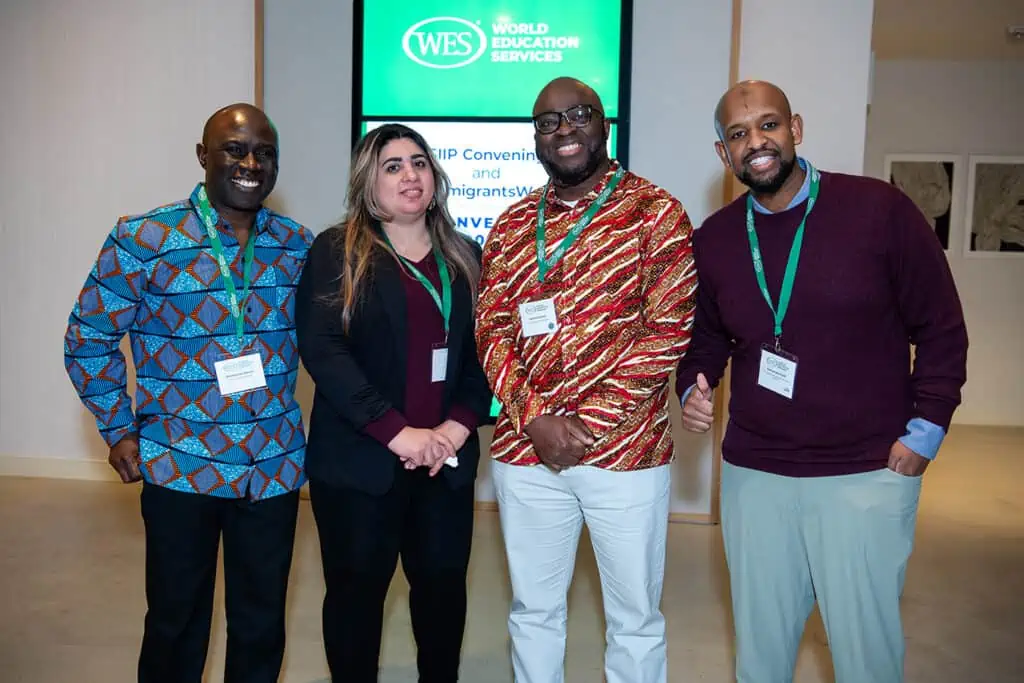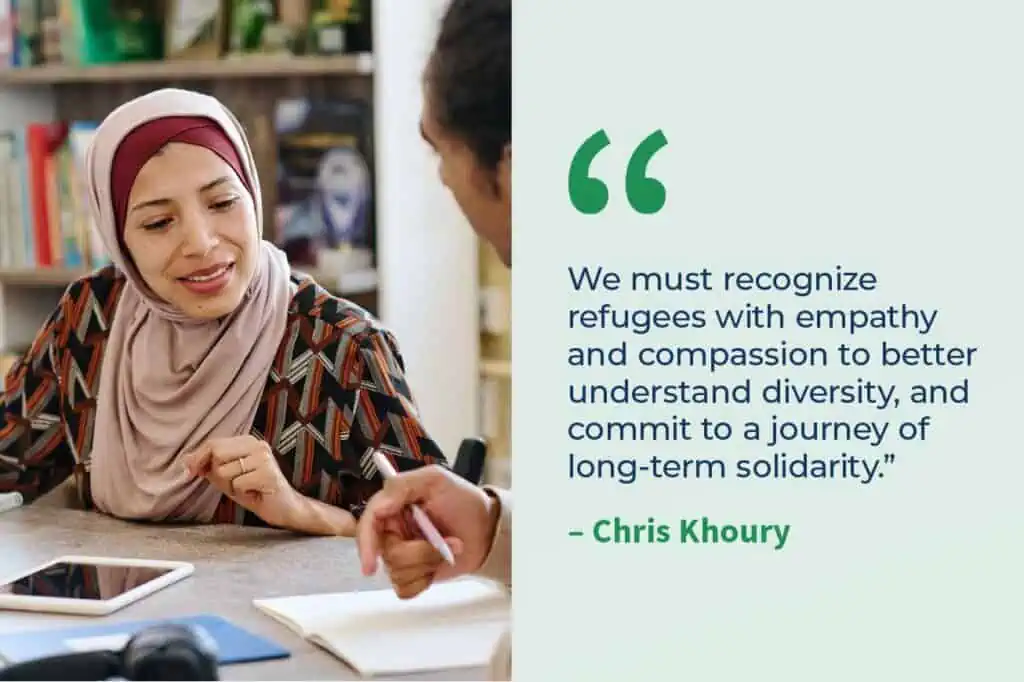SIIP Convening 2022: Strengthening Partnerships and Programs
In late October, a diverse group of organizations working on behalf of internationally trained immigrants and refugees gathered in Washington, D.C. at the fifth annual Skilled Immigrant Integration Program (SIIP) convening. The convening was attended by nearly 100 participants representing 33 out of 40 total SIIP communities—including SIIP alumni and members of the current 2022-2023 SIIP cohort—as well as SIIP technical assistance providers and staff. Attendees came from a variety of sectors and included direct service providers, partner agencies, and state and local government representatives.
The event provided an opportunity for in-person networking and strategy building by facilitating personal connections and building relationships across programs. Current cohort communities benefitted from meeting with SIIP alumni and national experts to ask for advice, take advantage of knowledge sharing, and find mentors in the field.
“It was great to network and collaborate with so many partners in a way we really could not have otherwise,” said Logann Grasteit, Workforce Board Liaison and Senior Management Analyst at the City and County of Denver and a member of the current SIIP cohort. “It was really inspiring to hear about the work that is being accomplished across the nation to help our immigrant and refugee neighbors.”
The SIIP Convening was held in conjunction with the WES Economic Inclusion Forum, which gathered additional communities and organizations from across the United States, to discuss the economic advancement of immigrants and refugees.
Identifying Common Themes
The SIIP convening included smaller breakout sessions focused on identifying and addressing common challenges among SIIP members, as well as on sharing major successes. Dedicated sessions for SIIP programs and opportunities included:
- The 2022-2023 SIIP cohort: The current SIIP cohort comprises 16 communities. They represent both new communities and SIIP alumni committed to advancing the workforce inclusion of immigrants and refugees across the U.S. Participants in the 2022-2023 SIIP cohort comprise four groups focused on the following themes: building career navigation tools and resources for internationally trained immigrants and refugees; advancing and retaining internationally skilled employees; connecting local workforce boards with untapped talent pools; and developing and expanding contextualized digital literacy programs.
- The SIIP Demonstration Opportunity: The demonstration opportunity provides SIIP communities with technical and financial assistance from WES Global Talent Bridge to deepen their impact and advance their capacity to develop replicable programs. The five participating communities in the current cohort focus their efforts on two themes: health workforce inclusion and supporting immigrant professional networks. The goal of the demonstration opportunity is to establish program models that can be replicated in localities or states throughout the U.S.
- The Teacher Bridge Project: Teacher Bridge is a collaboration between states and local partners to strengthen pathways to teaching for internationally trained educators with the goal of supporting more robust and inclusive educator workforces.
- The SIIP alumni network: SIIP’s network consists of 32 communities from the 2018, 2019, 2020, and 2021 cohorts that focus on local needs, including driving employer engagement, building local and regional partnerships, creating career navigation tools, and engaging community colleges.
Key Takeaways
Below are the main takeaways and lessons learned from the SIIP convening, as shared by the attendees:
- Knowledge sharing among states can support more equitable pathways for internationally trained immigrants and refugees. Although each state has its own licensing processes, it is relevant to learn from states that have made meaningful reform.
- Encouraging partnership between employers and service providers is essential to ensuring inclusive workforces. Service providers and partner agencies can demonstrate to employers the value of inclusive workforces: by employing immigrants and refugees, employers are not only addressing the demands of diversity, equity, and inclusion (DEI) initiatives, but also promoting a more robust and productive workforce. The convening covered advice and tools for service providers and agencies on how to effectively engage with employers, including key messaging to encourage their support.
- Funding solutions in the immigrant and refugee inclusion space can be found in the public and private sector. WES’ philanthropical arm, the WES Mariam Assefa Fund, participated in the convening to provide perspective and offer information on potential funding opportunities and resources. Examples include the WES Mariam Assefa Fund’s own grants and impact investments distributed to immigrant- and refugee-serving organizations that are looking to expand their services and deepen their impact. Public funding opportunities for workforce development and adult education are primarily supported by the Workforce Innovation and Opportunity Act (WIOA), a federal law that provides public investment through the states.
- Localized career pathways guides that provide essential guidance to international trained immigrants and refugees should be accessible . These state-specific guides should be updated regularly with current industry-specific information. They should also be made easily accessible through centralized hubs.
Recognizing Success
At its core, this year’s SIIP convening represented a celebration of how far SIIP has come since its launch in 2018. SIIP has grown from eight communities in its first cohort to a network of 40 communities across the U.S. today. As WES CEO and Executive Director Esther T. Benjamin observed: “There is power in numbers and networks.” The SIIP network demonstrates the strength of programs and partnerships to advance equitable and inclusive practices.
Read our blog post covering highlights and emerging themes from the WES Economic Inclusion Forum.





